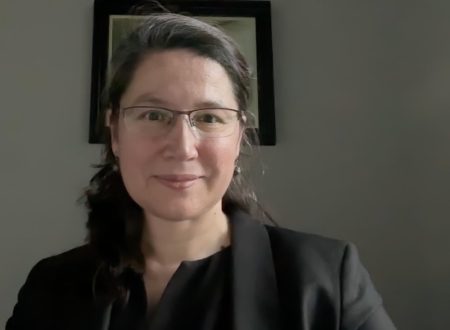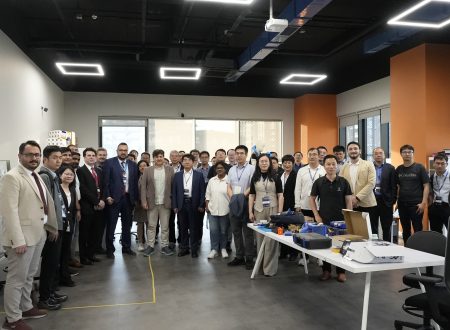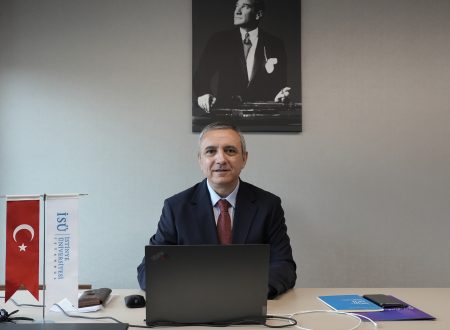Sustainable Fashion as a Social Transformation
Fashion is no longer about consumption, but about awareness
Sustainable fashion is shaking the foundations of the traditional fashion system. Fashion is no longer merely a space of consumption — it is evolving into a field of awareness. Asst. Prof. Dr. Çiğdem Ertikin from İstinye University emphasizes that the concept of sustainable fashion is transforming the conventional fashion model from the ground up, stating:
“The designer of the future is not only someone who dresses beautifully, but someone who transforms the world.”
Sustainable Fashion: Beyond the Environmental, Toward Social Change
Today, sustainable fashion represents not only an environmental shift but also a social transformation. The traditional model of fashion — built on speed, novelty, and consumption — is giving way to an approach centered on the life cycle of a product, ethical values, and environmental impact.
Asst. Prof. Dr. Çiğdem Ertikin from the Faculty of Fine Arts, Design, and Architecture at İstinye University, Department of Textile and Fashion Design, shared her insights on the growing importance of sustainable fashion.
“Fashion is Ceasing to Be a Commodity of Consumption”
Dr. Ertikin notes that sustainable fashion is redefining the classical fashion system:
“While traditional fashion relies on speed, innovation, and consumption, sustainable fashion focuses on the life cycle of the product, ethical values, and environmental impacts. This mindset highlights fair labor, transparency, and responsible production at every stage — from design to manufacturing. Fashion is no longer a mere object of consumption; it is becoming a cultural expression that respects both nature and humanity.”
“Sustainability Education Should Be a Way of Thinking”
Emphasizing the critical role of universities in this transformation, Dr. Ertikin explains that İstinye University places sustainability at the heart of the design process:
“We focus on eco-design, eco-dyeing, material circularity, digital design tools, and ethical production. We encourage our students to become designers who empathize with the environment and use technology for sustainable purposes. Through collaborations with companies and hands-on workshops, we reinforce this awareness.”
“Technology Is Driving a Revolution in Sustainable Fashion”
According to Dr. Ertikin, technology acts as the driving force of sustainability in fashion:
“Artificial intelligence supports data-driven decisions from production to marketing; 3D design and digital fabric technologies reduce the need for physical samples, conserving resources. Digital Product Passports and blockchain-based traceability systems enhance transparency in production, while digital twin technologies make it possible to assess the environmental impact of designs before production. The future of fashion is now ‘phygital’ — shaped at the intersection of the physical and digital worlds.”
“Younger Generations Expect Values from Brands”
Highlighting the consumption awareness of Generation Z and Alpha, Dr. Ertikin remarks:
“For these generations, it is just as important for a product to be ethically produced and made from sustainable materials as it is to be aesthetically appealing. Brands must now focus on meaning, storytelling, and responsibility rather than speed.”
“Türkiye Can Be an Innovative Solution Partner”
Pointing to Türkiye’s strong production infrastructure and strategic location, Dr. Ertikin says:
“With data-based traceability systems, standardization, and education-centered transformation, Türkiye’s potential in sustainable textiles can be further strengthened. The country can become an innovative solution partner in eco-design and bio-based materials.”
“Success Is Now Measured by Social and Environmental Impact”
“The fast fashion model, with its overproduction and low quality, harms both the environment and labor. True sustainability must prioritize slowness, quality, and responsibility over speed. Success should no longer be measured by the number of products, but by their social and environmental impact.”
“See Sustainability Not as a Trend, But as a Responsibility”
Dr. Ertikin concludes with a message to young designers:
“My greatest advice to young designers is to see sustainability not as a passing trend, but as a core responsibility of design itself. Fashion today is no longer just about aesthetic production — it is a multi-layered ecosystem where social, environmental, and technological effects intersect. The designer should not only be a ‘creator’ but also a ‘transformer.’ New-generation designers must learn to think by integrating material knowledge, digital tools, and ethical values. The future of fashion will be a hybrid space where physical production and digital experience merge. The future of the fashion industry lies not in producing beautiful collections, but in designing a more just, transparent, and livable world.”







